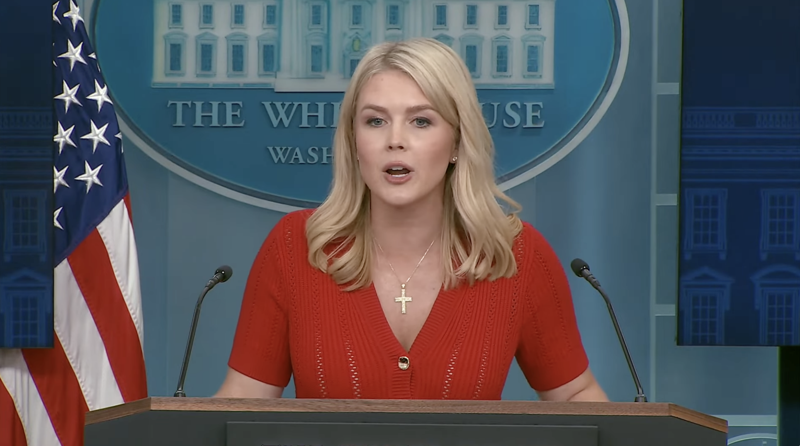The White House is rejecting claims that the current budget bill adds over $4 trillion to the federal deficit, saying those are based on “shoddy assumptions” from the Congressional Budget Office.
“The Congressional Budget Office and other scorekeepers … have historically been terrible at forecasting across Democrat and Republican administrations alike,” White House Press Secretary Karoline Leavitt said during Thursday’s press briefing.
Leavitt said the office, which provides Congress with “objective, nonpartisan, and timely” analyses of federal economic and budgetary decisions according to several government websites, hadn’t accounted for the kind of growth that could reasonably be expected under the Trump administration. She pointed to projections from the office during the previous Trump administration as an example.
“Just before Congress enacted the original Trump tax cuts at the end of 2017, the same CBO projected that growth would average a mere 1.9% over the next 10 years. However, by the end of 2019, actual growth had surged to 3.4% once the Trump tax cuts went into effect,” Leavitt said.
She said the CBO was once again basing its projections on “anemic growth,” causing it to err in its calculations on Trump’s One Big Beautiful Bill Act.
“The CBO assumes long-term GDP growth of an anemic 1.8% and that is absurd,” Leavitt said, adding that Americans could expect economic growth like “they’ve never seen before” if the bill passes.
She said analyses by the Council of Economic Advisers – an agency within the Executive Office of the President that consists of three members, all appointed by the president – was more accurate and reliable than what the CBO has provided in this case.
“The Council of Economic Advisers has factored in the effects of all of these pro-growth policies and estimated in their own analysis that growth will average 3% in the long run after the One Big Beautiful Bill is passed,” Leavitt said, speaking of the bill’s tax cuts and the deregulation and energy policies the administration has advanced.
That kind of growth will result in $4.1 trillion in additional revenue over the next decade, according to Leavitt, which would cancel out the amount the CBO has said the One Big Beautiful Bill will add to the federal deficit.







